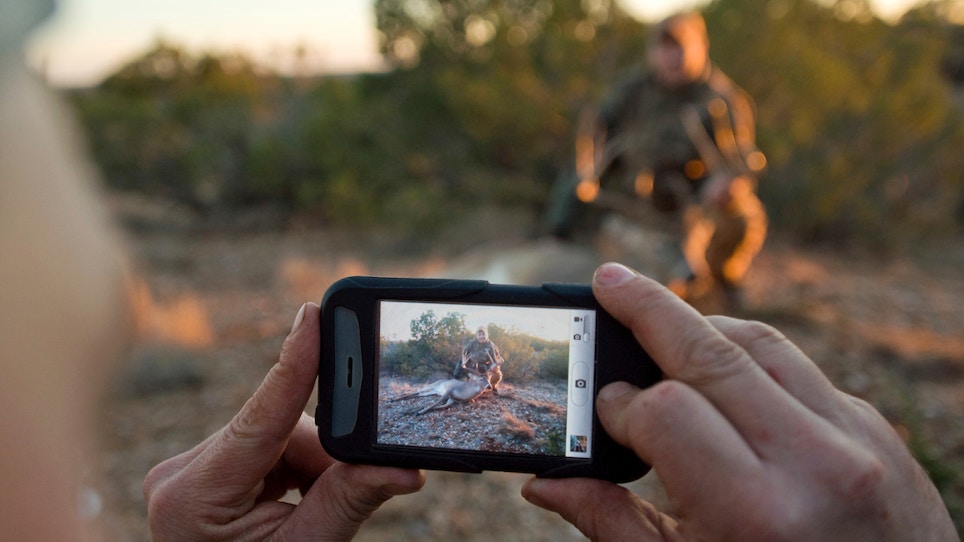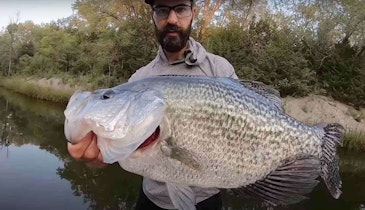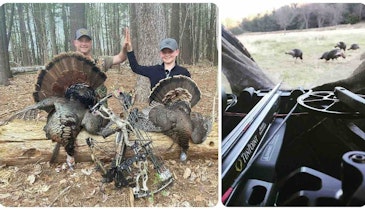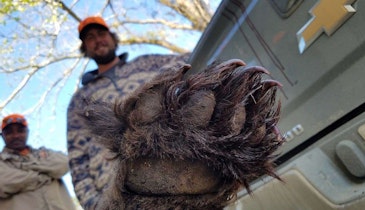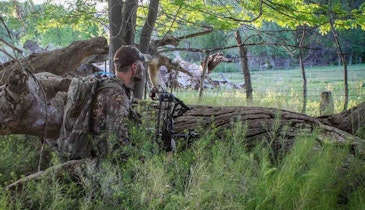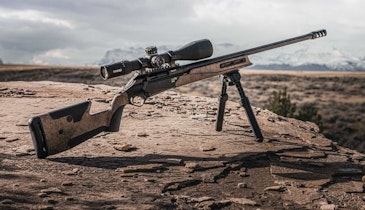 In another life I was, for a time, a licensed assistant hunting guide in Alaska. Before and after those days, I have spent a lot of time taking youth, novice and first-time hunters (and anglers) afield for everything from small game and upland birds to wild turkeys and waterfowl to big game of all types, and everything from tiny panfish to giant halibut.
In another life I was, for a time, a licensed assistant hunting guide in Alaska. Before and after those days, I have spent a lot of time taking youth, novice and first-time hunters (and anglers) afield for everything from small game and upland birds to wild turkeys and waterfowl to big game of all types, and everything from tiny panfish to giant halibut.
Obviously, it’s something I love to do. Sharing my life’s passion with others and watching their eyes light up gives me great pleasure. It’s also a way for me to both give back and pay it forward. By showing newbies what hunting and conservation is all about, I hope I’m helping create more people who both understand the North American Conservation Model and, when the time comes, will support hunters and hunting at the ballot box. Selfishly, it also allows me to spend more time hunting, even if I don’t have a tag of my own.
Taking on this role brings a host of responsibilities. In effect, you are responsible for leading a safe and fun day that hopefully results in some shooting. One of the things you have to remember is that you are taking someone else hunting, not going hunting with them. There is a big difference. They need your undivided attention and your best efforts. At day’s end, you hope they will have had loads of fun, learned a lot and want to do it again.
Here are 10 tips for taking a newbie hunting.
10. Set Realistic Expectations
Before the big day arrives, you’ll have talked to your “client” in preparation. They, of course, think you’re some sort of Rock God, a real woodsman that gets game every time out. It’s critical to emphasize the importance of patience, persistence and hard work, and the fact that every trip does not result in killing something. As the saying goes, under promise and over deliver.
Related: 5 reasons to create a new hunter this summer
9. Practice Shooting
One thing I will not do is take someone afield who has not been practicing their shooting. Rifles, shotguns, bows, crossbows, doesn’t matter, the taking of any life is very serious business and we owe it to the magnificent game we hunt to do everything in our power to make an accurate shot when the time comes. At the same time, I make shooting practice fun and stretch it out over time. This builds the required skill set and teaches ethics.
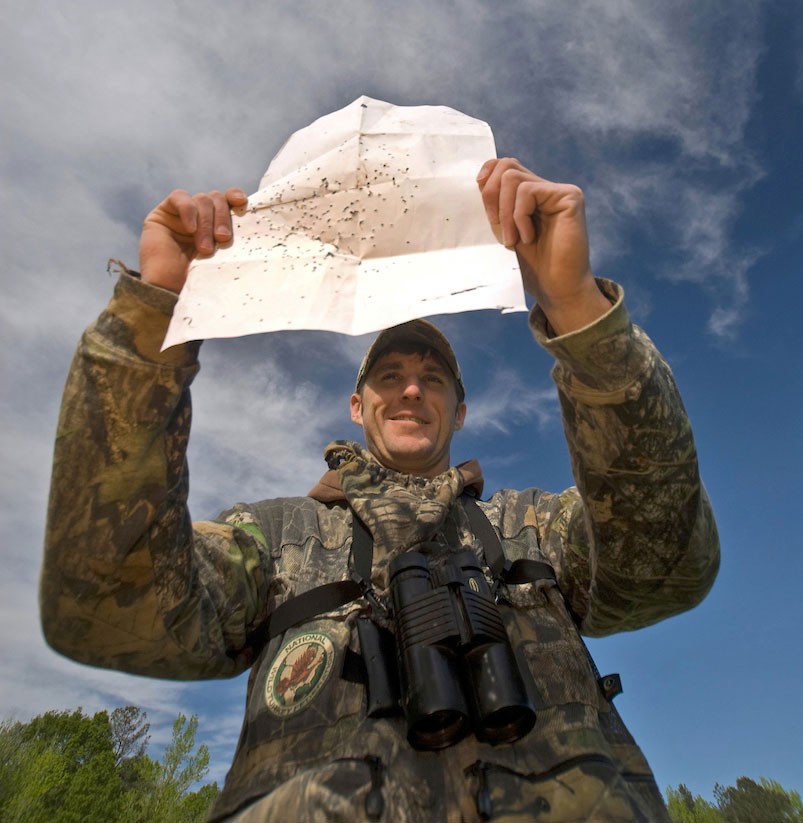
Taking any life is very serious business and we owe it to the magnificent game we hunt to do everything in our power to make an accurate shot. (Photo: John Hafner)
8. Pick a Red Hot Location
Part of your job is finding the game, and that means scouting. Here’s an example, albeit fishing. In Alaska, I had a river I liked to fish off the bank for migrating king salmon. There weren’t many spots where you could consistently catch them from shore, but I found a couple. So when new anglers visited, I would make run to the river to make sure there was a fishable spot that had fish. Sometimes that took a while. But I knew when I took them, they had a great chance of catching a big king and wouldn’t be bored to tears.
7. Tell Them The Plan
Nobody likes to be mushroomed. Before the hunt, talk with your hunters. Describe where you’ll be hunting, what the terrain is like, what will be involved, and what they need to do. Paint a full day’s picture so that if success doesn’t come quickly, they won’t be disappointed or give up.
6. Get Them Involved
Part of the fun is learning how to actually do stuff, not let the guide -- you -- do everything. Make sure they have their own binocular and help with the glassing. If you’re using a locator call turkey hunting, for instance, let them blast away on the crow call or yelp with a box or push-pull call. If a gobbler actually answers, can you imagine how excited they’ll be?? Teach them how to read sign, dope the wind, read the weather, identify food sources. They’ll want more.
Related: 10 reasons all hunters should be on Pinterest
5. Gear Up Properly
Make sure they have the proper clothing and well-broken in footwear. If you’re taking your wife, don’t make her wear some of your old camo clothing, go out and buy her a set of her own that fits her right.

If you’re packing lunch, be sure to throw in a yummy treat. And bring along some jerky or meat sticks to emphasize we eat what we hunt. (Photo: iStock)
Get them their own day pack. Make sure they have enough layers to stay warm, and be prepared to carry their jacket for them when it warms up. Need rain gear? Make sure it doesn’t leak and is quiet. The right gear will make them more efficient, but it will also make them proud.
4. Bring Snacks
Nothing’s worse than being out for several hours and hear a stomach start to growl, or some light coughing because they’re thirsty. Bring plenty of fluids and enough snacks. When it comes to snacks, bring their favorites. If you’re packing lunch, be sure to throw in a yummy treat. When possible I like to bring jerky or meat sticks made from game I’ve killed, which is both tasty and helps emphasize the fact that we eat what we hunt.
3. Emphasize Safety
Safety first. Always. Especially firearms safety. It’s easy for novice hunters to get excited and forget where their muzzle is pointing. Once they shoot, check to make sure their safety is on, then clear the chamber. Never cross fences or other obstacles with a loaded gun. If bowhunting, make sure broadheads are safely stored in a quiver. When field dressing game, teach them how to properly use a knife, why they should never slice back toward their own hands or body, and the importance of wearing gloves. Always remember that it is never wrong to talk about safety in the field.
2. Make It All About Them
This cannot be overemphasized. The day is all about them, not you. Before you hit the woods, assess their capabilities. If they’re young, you know they’ll have a tendency to fidget and lose their concentration. Maybe they’re older, or have some physical problem that makes a lot of walking difficult. If you’ve been to the range with them you know how well they can shoot, so try and set up a scenario where any shots at game will be within that skill set. It’s OK to challenge them, but plan the day around what they can do, not making them do things that will make them miserable.
Related: Best Deer Rifles of 2017
1. Make Memories
Win, lose or draw, nothing makes the day more special than having pictures to help remember every little thing. And not just hero shots after a successful hunt, but take a few shots during the day of your hunter just being a hunter. Then, when you’re heading back to the truck, talk to them about the day. Nothing makes a novice feel better than hearing compliments from a grizzled old veteran — you — about anything and everything positive that they did, about how proud you are of them and maybe even how you’d love to do it again some day.
How about you? What do you do to make a novice hunter’s days afield special and memorable? Drop me a note at brobb@grandviewmedia.com and share them with me.
Featured image: John Hafner
